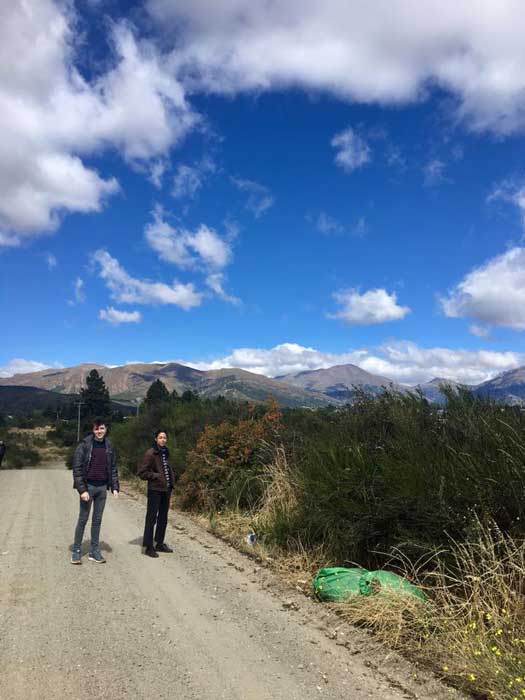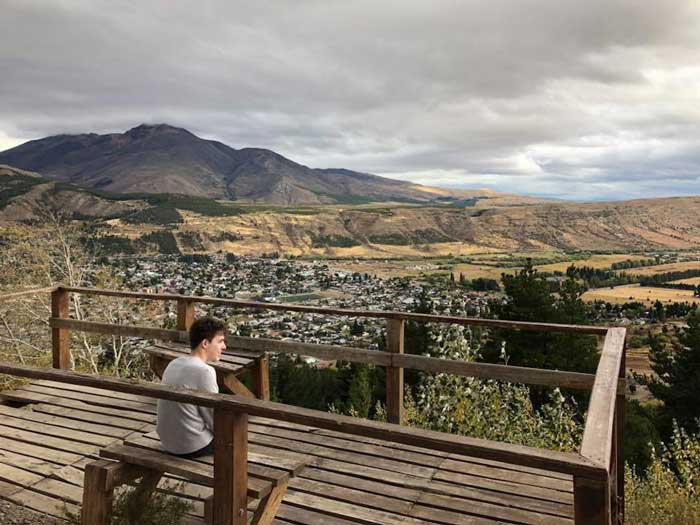UA Little Rock student researches the role of Argentinian films in LGBTQ rights
A University of Arkansas at Little Rock student spent the summer at a prestigious study abroad program where he examined Argentina’s films to determine the role they play in citizens’ LGBTQ rights.
Dylan Wright, a junior Spanish and political science double major from Little Rock, attended the School for International Training through the study abroad program, “Argentina: Human Rights and Social Media,” from March through June.
“I didn’t want to just study Spanish,” Wright said. “I looked for programs that were taught in Spanish, and I was very interested in human rights. I found a program based in Buenos Aires that was taught in Spanish and studied human rights. It was really interesting to see Argentina’s human rights history up close.”
The law regarding human rights in Argentina is unique since the country included several international human rights treaties into its constitution in 1994, which resulted in the importation of international law into the country’s legal system.
“They are at the forefront of human rights in many areas. People talk about human rights there all the time; things that people in the U.S. would not realize they have human rights to. Even on the buses, there is a sticker on the bus outlining the human rights that pertain to transportation. Everyone has the right to health care. They don’t view it as a privilege. They view it as a fundamental right.”
Wright completed his research paper this semester under the mentorship of Dr. Erin Finzer, associate professor of Spanish and associate vice chancellor for academic affairs. He plans to present the paper, “Framing LGBTQ Rights: Critical Film Perspectives in the Argentine Queer Community,” at a conference in the spring 2019 semester.
Through the study of Argentine film, particularly the Latin American film movement known as Third Cinema, as well as through the concept of cultural agency, Wright worked to enhance and develop an understanding of the role that art and culture can play in advancing civil rights and social equality.

“Third Cinema developed in Argentina. The people who first coined the term were film directors from Argentina in 1968 and 1969,” Wright said. “After the dictatorship ended, there was a big call for cultural products that opposed the dictatorship. I looked at independent queer cinema in Argentina. It was interesting to look at how the directors implicitly took inspiration from Third Cinema’s tropes and styles. I interviewed one film director, one film historian, and an artistic director of a film festival that focuses on queer cinema.”
In the spring 2019 semester, Wright will put his language skills to use in another international human rights project. He received a Signature Research Experience Award to work with Dr. Eric Wiebelhaus-Brahm, associate professor in the School of Public Affairs, who is examining truth commissions in 11 Latin American countries, including Argentina, which were created to investigate human rights violations committed during military dictatorships or during civil wars in the region.
“We are looking for the truth in what happened during the dictatorships in these 11 countries,” he said. “Since Eric does not speak Spanish, I will use textual analysis to see what language might have been more effective in these truth commission reports and what might have been copied from other reports.” Through the project, Wright will learn new research methodologies.
Wright, who is currently taking a human rights course with Wiebelhaus-Brahm, is interested in how international law can be used to help people who have suffered human rights violations.
“I am really interested in human rights in general,” Wright said. “Since I speak Spanish, it’s easier to focus on Latin American commissions. There is a push for truth there that isn’t in a lot of the rest of the world. I am interested in how international law can make tangible differences in people’s lives in a way that is not arcane.”
After graduation from UA Little Rock in 2019, Wright plans to attend a graduate program in law and public policy to eventually work in the field of civil and human rights.
In the upper right photo, Dylan Wright overlooks Esquel in Argentina’s Chubut province, where he and fellow students learned about local organized resistance to large mines.
